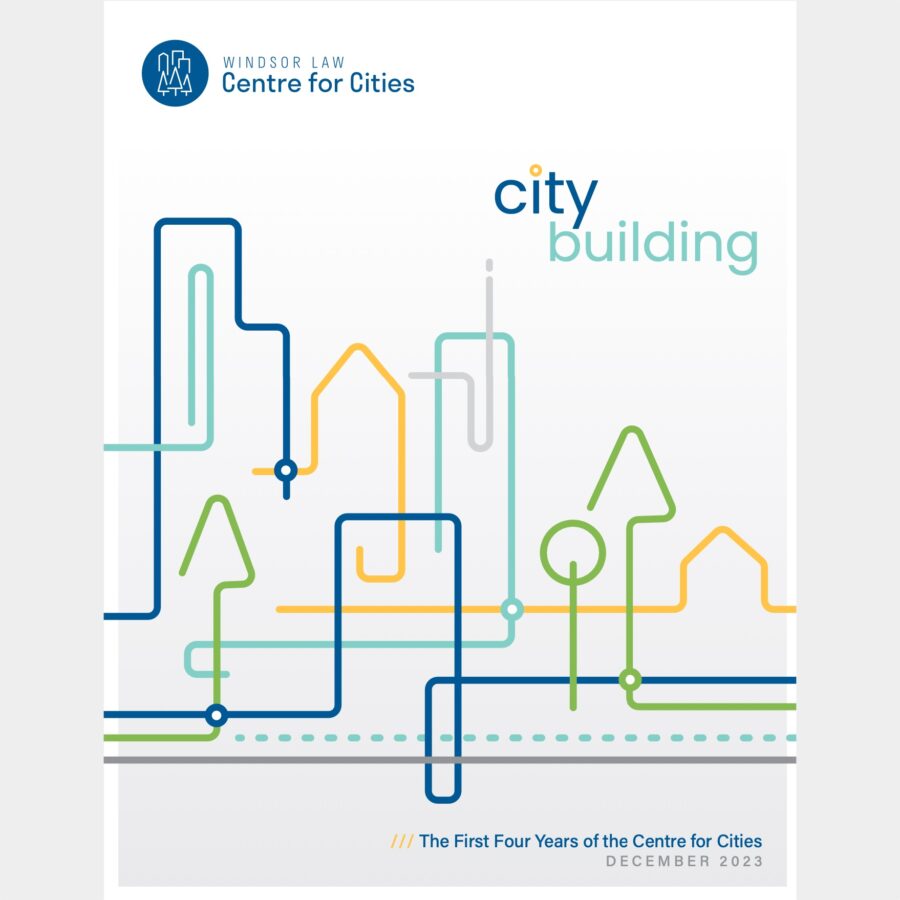
Blog: Supported by delegates, Windsor’s 2020 budget signals climate action shift
(6 February 2020) By Jessica Jakubowska and Antonia Hristova (Windsor Law 3L students, Cities and Climate Action Forum members)
Windsor city council held the city’s annual budget meeting on Monday January 27th. The budget included the new provincially mandated Asset Management Plan. The city’s treasurer, Joseph Mancina, received appreciation from Mayor Drew Dilkens after completing his 45 minute overview of the city’s budget plan — Dilkens even jokingly directed a colleague to give Mancina a glass of water after his 45 minute presentation. Mancina spoke of the city’s overarching goal of “fiscal responsibility” towards its Master Plans such as the Sewer Responsibility Master Plan and the Active Transportation Master Plan.
For Windsorites unable to attend the Budget Meeting on Monday, news media reports and online sources provided a snapshot of the budget priorities and the funding provided for each item. Most headlines reported the 2.1% tax increase to the city’s operational budget— which is lower than the expected 2.2% rate of inflation. Furthermore, the reports shed light on the $161 million that would be allocated to the operational budget and several cuts made to services such as the $600,000 cut to Windsor Police Services and $125,000 cut to the Windsor-Essex Economic Development Corporation.
Although these reports are essential for the purpose of informing constituents of Windsor city council’s spending, one aspect of the debate that garnered less news media attention (with the exception of reporting by CBC’s Jonathan Pinto) was the climate change, sustainability, and livability discourse of many of the 10 delegations to council on budget morning. These delegations illustrated the growing passion Windsorites have for local climate action and the tangible steps the city must take in order to satisfy its commitments to mitigate climate change. These delegations addressed issues surrounding the protection of endangered Ojibway tallgrass and wetland species, expansion of eco-parkways and passages around Windsor’s Ojibway Prairies, sufficiency of transit to services in the planned new Sandwich South subdivision and, more generally, the push to frame Windsor’s budget through a climate lens.
Patricia McGorman, City resident, speaking on Ojibway Parkway (photo credit: Windsor Star)
Although not all (but many) delegations directly used climate change terminology, the underlying elements of these issues point to local efforts and desire to promote walkability, sustainability and biodiversity in the city.
These delegations are a clear indicator that Windsorites demand action now. Moreover, on November 18, 2019, the City of Windsor declared a Climate Emergency and City officials made promises that the City is prepared to act on the declaration very quickly, by looking at future decisions through a climate lens. On Monday, there were some quick wins which did reflect a priority on climate action, including renewing funding for a Community Energy Plan Coordinator and approving the hiring of an Active Transportation MP Coordinator, Open Streets Funding, Riverside Road diet funding, tree maintenance and parks funding, and reversing a proposed increase in restaurant patio licensing fees. During the closing remarks at the end of the meeting, Councillor Chris Holt stated that he is delighted to acknowledge that counsellors have taken steps to address climate change in this budget.
However, despite these quick wins, we need a fundamental overhaul of how decisions are made at the local level.
Any governance body’s true priorities are directly reflected in its budget.As pointed out by the Cities and Climate Action Forum’s own students, Ali Tejani and Tasha Stansbury, appearing as delegates at the budget meeting, a fundamental issue for municipal budgets and climate change is one of framing (read Stansbury and Tejani’s full submission here). The City of Windsor’s 2020 budget was not crafted through a climate lens, with only three items mentioning climate change in the capital budget, and three items in the recommended operational budget (see Frazier Fathers’ post). Viewing budget deliberations through a climate lens is critical to not only addressing Windsorites’ concerns but also to staying committed to the city’s Climate Emergency Declaration and its emissions targets passed in the 2017 Community Energy Plan (CEP), and to transforming such commitments into real action – not only through climate change adaptation, but also through mitigation efforts.
Ali Tejani & Tasha Stansbury of Windsor Law Cities and Climate Action Forum.
At the end of the meeting Monday evening Mayor Drew Dilkens stated that “the best budget is one that leaves each side thinking it could have done just a little bit better”. It is certainly so with respect to climate action – the city can do much better. With an administration report set to be returned to council in February on implementation of the climate emergency declaration, it is to be hoped that in next year’s budget it will.



